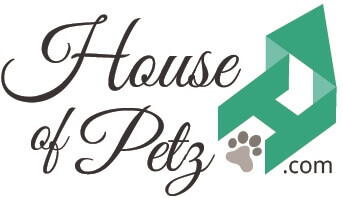Whether you’ve recently acquired a puppy or have had dogs your entire life, there’s likely to be something in this list of dog care recommendations that you didn’t know – but should.
Health Advice for Dogs
1. Don’t overfeed your dog; it will have a negative influence on their health and happiness.
Obesity affects more than half of all dogs in the world, and the figure is rising. Overweight dogs are more likely to have metabolic irregularities, cardiovascular illness, joint disease, a weakened immune system, and a variety of other health issues. They are also less mobile and cannot run, play, or participate in other activities as much as they would want. Feed your pet the quantity prescribed by their veterinarian and don’t give in to those puppy dog eyes when they ask for more!
Please Read : https://www.houseofpetz.com/should-dogs-follow-the-same-diets-as-people/
2. Caress your dog’s nose
The amount of wetness in the nose varies depending on the dog and the time of year, but a healthy dog will have a cool and somewhat wet nose since dogs release perspiration via their nose to cool down.
3. Schedule yearly veterinary visits.
Allow the professionals to inspect your dog on a regular basis to test for health concerns and offer you the finest, individualized advice to keep your darling pet healthy for many years.
4. Put together a “pet first aid” bag.
Accidents and emergencies occur, and being prepared with all of the necessary items to assist your dog is an important step in being a good pet owner. When you take your dog to some adventure like a trek or camping, then such a kit can come in handy at the time of an emergency. Every dog parent should have a DIY pet first aid kit.
5. Obtain pet insurance
Accidents and diseases that occur unexpectedly and unexpectedly cost a lot of money. With up to one-third of dogs requiring emergency treatment each year, this may rapidly become an expensive strain. Pet insurance may assist to cover these unforeseen expenditures, prescription prescriptions, long-term health concerns, and other issues, making it a crucial investment for your family’s four-legged members.
Please Read: https://www.houseofpetz.com/best-guide-to-food-or-nutrition-needed-for-dogs/
6. Brush your dog’s teeth.
Brushing your dog’s teeth is sometimes ignored, but it is critical to their general health and preventing costly dental procedures in the future. Make this a regular part of their regimen, and use a toothpaste formulated exclusively for dogs. Teeth brushing may be a joyful exercise for your pet every day with a little effort and instruction!
7. Prepare an emergency plan.
It’s not easy to consider, but it’s critical that you have a plan in place for your dog in case something happens to you. Make a note of crucial facts regarding your dog’s lifestyle, such as how frequently they are fed, how much they are given, medications, their veterinarian’s phone number, and so on. Make copies of this for everybody in your life who could care for your dog in an emergency. It’s also essential to inquire around to ensure that you have at least one or two individuals who live nearby who can help your dog on short notice.
8. Have Fun with Purpose
Play with your dog’s feet, ears, and lips when caressing and playing with them, especially when they are young. Touching their feet, toes, and nails during positive play will desensitize them to being touched in these areas when it comes time for nail trims. Examining their ears and mouths and accustoming them to being handled in this manner will make it much simpler for your vet to evaluate your dog when they come in for checkups. This will make your doctor’s job simpler, your dog will be less anxious during the exam, and your vet will be more likely to detect any irregularities if something is wrong with your dog.
9. Keep your rubbish locked up.
Dogs are attracted to the delightful fragrance of your rubbish and may consume items that are hazardous, dangerous, or indigestible, so keep your trash safe. Ingestion of foreign items or hazardous chemicals may need expensive emergency operations.
10. Provide a safe haven for your dog.
Create a temperate zone in your house with your dog’s bed or blanket, some toys, and a water dish where your dog may feel comfortable and comfortably slumber during the day. This can assist your dog in self-soothing during stressful situations such as parties, a crying infant, or thunderstorms. If your dog was crate trained as a rescue puppy or when they first joined your family, having their crate open and available even after they no longer need it for training may offer them a wonderful space especially for them that they will appreciate.
Please Read: https://www.houseofpetz.com/what-should-i-feed-my-dog-during-pregnancy/
11. Wash your dog’s belongings on a regular basis.
Germs, dirt, pollen, and other contaminants accumulate on your dog’s bedding, soft toys, and blankets. Make sure to wash these items on a weekly basis to maintain them fresh and clean for your dog. If your dog has seasonal allergies, this might be very beneficial in limiting pollen exposure.
12. Restrict your dog’s access to human food.
Many human delicacies, such as chocolate, avocados, and onions, are poisonous to dogs and can have major health consequences. Keep human food out of reach, and be extra cautious with gum and sweets, since many contain xylitol, a sugar-like chemical that is poisonous to dogs. If your veterinarian recommends it, do not intentionally give your dog human foods.
Some human foods, like plain chicken, canned pumpkin, or plain rice, maybe purposely be advised by your veterinarian for particular reasons such as digestive disturbance, diarrhea, helping to conceal oral medicine or as highly stimulating training incentives in tiny quantities. In certain cases, “human food” may be okay for your dog, but they are not required to lick your dinner plate or eat your leftovers.
These tips will help to keep your lovely pet healthy and allow them to live longer.

Fantastic article! Useful and informative!